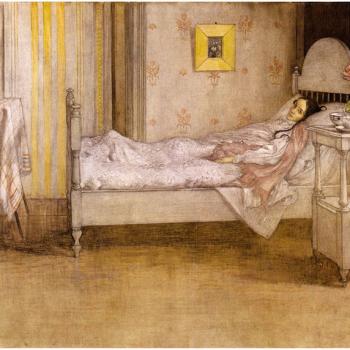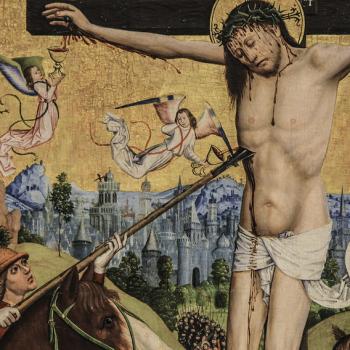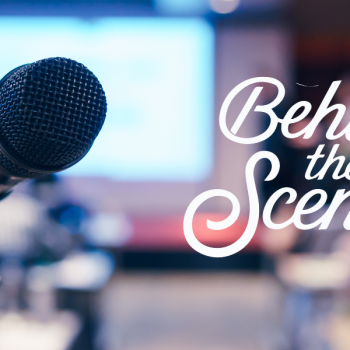Two weeks back, I flew to the Gladstone Library in Wales to attend a weekend seminar on Islam offered by Chris Hewer, a British Christian theologian who has written the fine book Understanding Islam and who worked for decades on interfaith reconciliation. Early in our weekend together, Chris told us that Muslims, Christians, and Jews—the Abrahamic faiths—can often find common ground in the Ten Commandments.
But, he said ruefully, for most of our long history together, all of our faiths have been breaking the commandment not to bear false witness against their neighbors.
Those of us who are insiders in a faith often know little or nothing of other faith traditions, and what we know (or think we know) is often passed on to us by others who, like us, are ignorant. Ignorance contributes to many bad consequences, but one of the worst is fear. When we don't know firsthand about followers of those wisdom paths, we are more likely to believe false reports of them, and to fear them accordingly.
The West is currently suffering through a bad case of Islamophobia. Since 9/11, many Americans have assumed wrongly that all Muslims are radical extremists willing to use appalling acts of violence like suicide bombing indiscriminately as acts of terror and revenge. As a result of this, we have turned Muslims (and consequently, Muslim-Americans) into the Enemy.
Into Monsters.
Chris repeated, over and over again during our Welsh weekend, that only a tiny percentage of Muslims are violent extremists, and that the Quran, which Muslims revere as God's word to humanity, actually forbids self-slaughter and the arbitrary slaughter of innocent noncombatants. I thought to myself, likewise only a tiny percentage of Christians are radical extremists willing to bomb abortion clinics or kill doctors who perform them. Yet all of us who call ourselves Christians are tarred by their actions. It's the same principle. Those of us who are not monsters may be seen as dangerous and terrifying because of those few of us who have been.
Chris Hewer has been doing two things for decades: teaching people about Islam so that they might have a better academic understanding of it, and working to bring together Christians and Muslims so that they might have a personal experience of each other. In the UK, he's done that work in the City of Birmingham, and in London at the St. Ethelburgas Centre for Reconciliation and Peace. St. Ethelburgas was a 13th-century church destroyed by an Irish Republican Army bomb in the early 1990s. The church was rebuilt and reborn as a peace center where members of different faiths might come together to better understand each other so that such things might not happen again.
This local interfaith work is vital, and thanks be to God, it's happening all over the world—and possibly in your own town. In my case, it's absolutely true. I can speak with passion about the interfaith conversations I've been having because of The Institute of Interfaith Dialogue, which has locations in Austin, in Houston, in Kansas City, and across the South and Southwest (you could also find a national master list of interfaith centers here). The IID fosters communication between people of different faiths so that instead of continuing to bear false witness against each other, we can see our neighbors as they are, and not just as the monsters popular culture or political demagogues say they are.
As Chris pointed out—and as I've discovered in my own conversations—understanding each other better will not mean we agree totally. It's not supposed to. There are faith questions that Christians, Muslims, and Jews will never settle, so we will have to be content to be cousins with theological differences. But understanding between us should mean that our disagreements can be honest, informed, and respectful of each other's traditions, and not knee-jerk reactions born out of fear and ignorance.
As I wrote earlier in the fall, the Austin IID sponsored Ramadan dinners in which Christians were invited into Muslim homes to learn about the significance of the holiday and Islam, and to break bread together. I was privileged to attend both a Ramadan dinner in a private home, and a dinner hosted by the Travis County Sheriff's Office, where Muslims gathered with representatives of the Austin Police Department, FBI, sheriff's department and the county jails, and local churches to talk and eat and learn from each other.





